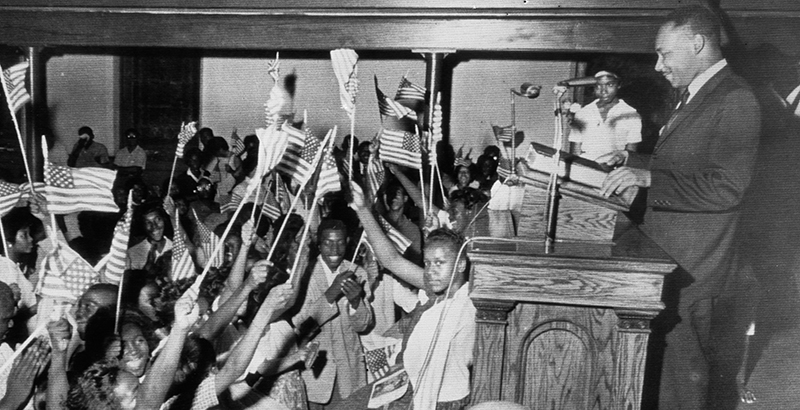Do you have goals and a plan in place to pursue them?
That was pretty much what the Reverend Dr. Martin Luther King Jr., asked an auditorium full of Philadelphia junior high students back in October of 1967 – just six months before he was assassinated on a Memphis motel balcony in April of 1968.
“What you do now and what you decide now at this age may well determine which way your life shall go,” he told those assembled inside Barrett Junior High School.
In the midst of Black History Month, I recently came across this moving address, and was impressed with both its poignancy and practicality. Many of us are familiar with Dr. King’s “Letter from Birmingham Jail” and his soaring “I Have a Dream” speech – but the idea of the famed civil rights leader spending time with the next generation can and should still inspire all of us.
Likening our early years to the blueprint of a building, Dr. King suggested there were three foundational elements in every successful life plan:
- Cultivate a Sense of Personal Significance:“Don’t allow anybody to make you feel that you are nobody,” he said. “Always feel that you count. Always feel that you have worth.”
Christian can grow uncomfortable with this notion, thinking it braggadocios or prideful. But it was C.S. Lewis who captured the delicate balance perfectly when he wrote, “Humility is not thinking less of yourself, it’s thinking of yourself less.”
- Pursue Excellence:According to Dr. King, it’s not enough to do the bare minimum and just get by. If something is worth doing, it’s worth doing well.
“I would urge you to study hard, to burn the midnight oil,” he told the students. “Don’t drop out of school. When you discover what you’re going to be in life, set out to do it as if God Almighty called you at this particular moment in history to do it.”
Acknowledging there are no small roles or responsibilities in life, the late minister urged:
“If it falls to your lot to be a street sweeper, sweep streets like Michelangelo painted pictures. Sweep streets like Beethoven composed music. Sweep streets like Leontyne Price sings before the Metropolitan Opera, and sweep streets like Shakespeare wrote poetry. Sweep streets so well that all the hosts of heaven and earth will have to pause and say, ‘Here lived a great street sweeper who swept his job well.’”
- Make a Commitment to Enduring Principles:In his quest for social justice and racial equality, Dr. King endured endless criticism from all sides. There were some who resented his call for nonviolent resistance. Others hated him for upsetting the status quo. The resistance wore on him, but he tried to look beyond the immediate to larger issues:
“In your life’s blueprint must be a commitment to the eternal principles of beauty, love, and justice,” he stated. “Don’t allow anybody to pull you so low as to make you hate them.”
Although offered almost 55 years ago, Dr. King could have been addressing the radical forces of the last few years that destroyed property and sowed chaos in American cities:
“Our slogan must not be ‘Burn, baby, burn,’ it must be ‘Build, baby, build,’” he warned. “Organize, baby, organize. Yes, our slogan must be ‘Learn, baby, learn’ so that we can earn, baby, earn.’”
Dr. King then concluded his remarks with an inspirational reference attributed to the poet, Langston Hughes:
“If you can’t fly, run. If you can’t run, walk. If you can’t walk, crawl, but by all means, keep moving!”
That’s good advice for teenagers, as well as wise counsel for those in their twilight years, and especially those of us in between.
Photo from Fuller.






